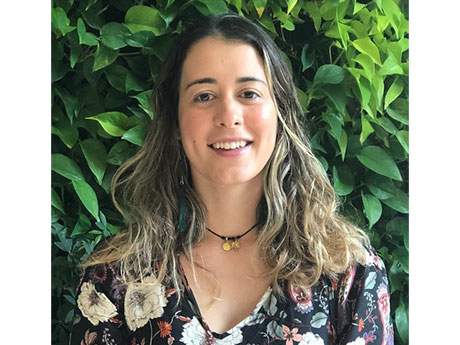By Sara Aristizabal, Delos Labs
For over two years, people in the United States and around the world have lived under varying levels of precautionary measures to control the outbreak of COVID-19.
Mandatory masking, vaccinations, social distancing and stay-at-home restrictions helped to slow the spread of the virus and prevent deaths. Inadvertently, these governmental policies also reduced respiratory infections that only a few years ago were of great concern, particularly among older adults and children, including influenza and the respiratory syncytial virus, or RSV.
Recently, however, many countries have either eased or fully lifted masking and social distancing requirements at a time when people are experiencing a waning immunity to COVID-19 and an increased exposure to other viruses from such precautionary measures.
As most Americans have resumed pre-pandemic activities such as traveling and socializing in large groups, experts have noted an increased risk of what is now referred to as the tripledemic — a concurrent surge in COVID-19, influenza and RSV cases.
According to the Centers for Disease Control and Prevention (CDC), the United States is already experiencing early increases in seasonal RSV and influenza cases across the country. That data, combined with a potential spike in COVID-19 cases during the colder months, paints a grim forecast for the possibility of a tripledemic during the upcoming U.S. winter season.
Seniors at highest risk
So how exactly does the tripledemic affect older adults, and what does this mean for senior living communities and their staff?
People age 65 and older are already particularly susceptible to the health risks associated with each of these viruses. A trio of viral threats would put an even greater strain on senior living community resources — in addition to the drastically lower staffing levels caused by the pandemic.
For residents of these communities, a gradual decline of the immune system due to aging, also known as immunosenescence, is one of the reasons why they are at a high risk for severe health outcomes due to respiratory viral diseases. The ability of the body’s immune cells (T and B cells) to respond to the threat of foreign bodies deteriorates over time, leaving older adults with limited vaccine-induced immunity and a higher risk for inflammatory disease.
RSV is a common respiratory virus that typically presents as a common cold, so patients typically do not seek immediate medical attention. This increases the risk of complications and viral transmission to other vulnerable populations, particularly in settings such as older adult communities.
Although RSV vaccines are currently in development, there is no known treatment for the virus in adults. According to U.S. healthcare estimates, RSV infections result in approximately 10,000 to 14,000 deaths among adults 65 years and older, 177,000 hospitalizations, and more than $1 billion dollars in healthcare costs per year.
Influenza is an infectious viral illness and a well-recognized cause of severe morbidity and mortality in older adults. Despite the availability of an influenza vaccine, the virus is responsible for approximately 32,000 deaths and 130,000 hospitalizations each year due to serious complications such as pneumonia, and exacerbations of underlying cardiovascular issues.
COVID-19 is the most contagious among the three respiratory illnesses. The disease has similar symptoms to influenza, which makes it difficult to diagnose based on symptoms alone. Older adults and those with underlying medical conditions are more likely to experience complications from the disease and require hospitalization.
Working toward solutions
What actions can senior living communities take to protect residents and staff during this time?
Although no single solution is 100 percent effective, there are steps senior living communities can take to combat the tripledemic threats:
- Provide influenza and COVID-19 vaccines or bivalent vaccine booster shots for all eligible individuals.
- Follow public health measures for mitigating the spread of viruses.
- Invest in healthy building strategies that improve air quality and clean surfaces. Air quality upgrades and enhanced surface disinfection protocols can provide an additional layer of protection to both residents and staff to reduce exposure risk across indoor settings.
Transmission of COVID-19, influenza and RSV occur in similar ways: by contact with surfaces contaminated with the virus (fomite transmission), or via droplets or aerosols containing infectious particles released through talking, sneezing or coughing.
Among healthy building strategies to improve air quality, the use of particle filtration systems have proven very effective at removing viral particles from the airstream in poorly ventilated or crowded indoor environments. Research performed in simulated classroom environments showed that when properly placed, portable air purification units can reduce the risk of both airborne and surface transmission and improve air quality throughout an entire room, not just near an air purification unit itself.
Similarly, findings from studies in hospital settings show that air filtration systems are effective in removing harmful particles that spread through the air, such as airborne respiratory viruses, and may be successful at reducing the concentrations of other indoor microbial bioaerosols carrying bacteria, such as streptococcus pyogenes, staphylococcus aureus and escherichia coli (which cause the common ailments strep throat, staph infection and e-coli).
For senior living community operators, it is crucial to take the necessary steps to keep residents and staff safe. Older adults spend most of their time indoors, and even long-term exposure to low concentrations of indoor air pollutants such as nitrogen dioxide, particulate matter and ozone can increase the risk of respiratory and cardiovascular disease.
Healthy building measures can provide benefits beyond the pandemic and the looming tripledemic.
Clean air is essential to human well-being. By removing pollutants from the air, senior living communities can help residents and staff sleep better, breathe easier and be healthier.
Sara Aristizabal, Ph.D., is a biomedical engineer and vice president at Delos Labs. She primarily works with the research and development team to develop technology-based solutions to improve health and well-being in indoor spaces.

